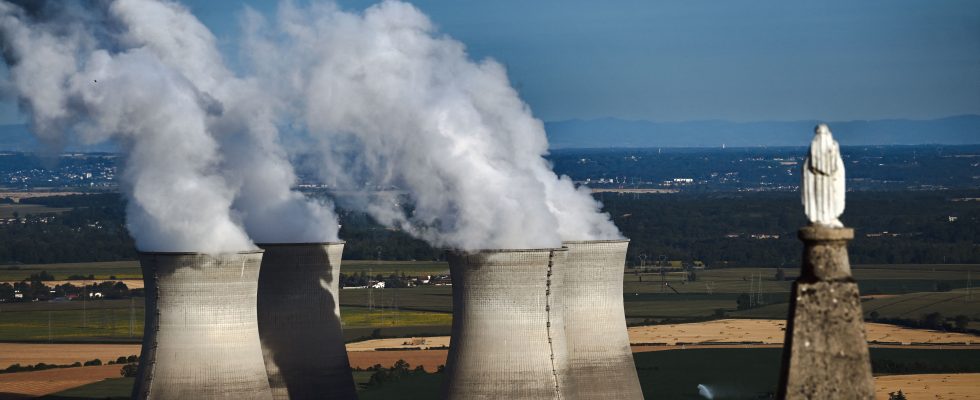The Energy Ministers of the European Union are meeting this Tuesday, October 17 to try to move forward on the reform of the electricity market. Julien Teddé, founder and director of the broker Opera Energie, takes stock for L’Express on the different possible regulation options. For him, a compromise remains possible between France and Germany. However, better consideration of EDF’s production costs also heralds an increase in electricity prices.
L’Express: There has been a lot of talk about contracts for difference (CFDs) which are the subject of a standoff between France and Germany. But what are the different possible avenues for reform?
Julien Tedde: The spectrum is quite broad. EDF is pushing, for example, to sign as many direct contracts as possible with other suppliers and certain customers, lasting at least twenty years. This would have the advantage of providing good visibility on prices. However, public authorities prefer the concept of contract for difference (CFD) backed by existing nuclear installations. To say that a power plant benefits from this mechanism means that it can continue to sell its electricity on the wholesale market. However, an additional stage of this system ensures the producer a regulated selling price. The consumer also benefits from protection against a purchase price that is too high. This is a good compromise between the market and regulation.
However, this system is the subject of tough negotiations between France and Germany, which fears for the competitiveness of its industry. If it were rejected, there would still be other possible solutions. We could, for example, introduce a ceiling price for electricity. As in 2022, beyond €180 per megawatt hour, the excess profit captured on the producers’ side would make it possible to finance the price shields. This would ensure that French consumers are protected if a new crisis occurs. Let us not forget that the Regulated Access to Historic Nuclear Electricity (Arenh) mechanism requires EDF to sell part of its electricity at the fixed price of €42 per megawatt hour. However, in 2022, at the height of the crisis, wholesale electricity prices exceeded the 1,000 euro mark. It is against this type of delusional phenomenon that European countries are today seeking to protect themselves.
Exactly, is the end of the Arenh, scheduled for 2025, good news?
On this subject, there is a huge gap between the perception of the political class and the media on the one hand, and that of businesses on the other. Certainly, the Arenh system has deprived EDF of significant revenue. It can be improved, for example by raising the threshold of 42 euros. However, Arenh is too often presented as something negative when, according to our calculations, this mechanism has halved exposure to wholesale prices for SMEs. The Arenh therefore played its protective role. Better, if we corrected the defects, this system could very well continue to operate. However, from a political point of view, he has become a scarecrow. We must therefore find what to replace it with, while one of France’s fundamental problems remains the lack of availability of the existing nuclear fleet, even if the situation has improved recently. If we could produce more electricity, tensions around European market reform would be much less.
Do Germany’s fears about too great a competitiveness differential with France seem justified to you?
If we are to believe the German Chamber of Commerce and Industry, SMEs located beyond the Rhine paid on average twice as much for electricity as French companies before the energy crisis. From now on, their bill would be four times higher. I find their estimate a little exaggerated, but we understand the emotion that such a situation can cause. Recently, the German Minister of the Economy Robert Habeck recalled that his problem was not that France has a nuclear park but that the operator of this park can sell electricity at a price below the Market value. So here we are at the heart of the matter. Germany does not want France to use its historic nuclear power as a competitive advantage. The evil spirits would say that this country is also beginning to realize that the simultaneous exit from nuclear power, coal and gas is turning out to be much more complicated than expected.
Even if European discussions focus on the establishment of protection mechanisms, should we prepare in France for an increase in prices?
One thing is certain: the price of 42 euros established by Arenh is obsolete. We must reassess EDF’s production costs because of the numerous investments to be made – major overhaul, maintenance and extension of the current fleet, development of new EPRs… So, to say that in the new regulatory framework, a higher price is necessary seems reasonable to me.
On the other hand, other questions remain open: is the regulation that we are considering compatible with European rules? What volume will this new regulation cover? If, for example, CFDs do not relate to existing nuclear power but only to new installations, the impact for consumers will be very limited, or even zero in the short term, since the next power plants will not be connected to the network before 2035 or 2040. However, I remain confident in the ability of European countries to find a compromise.
